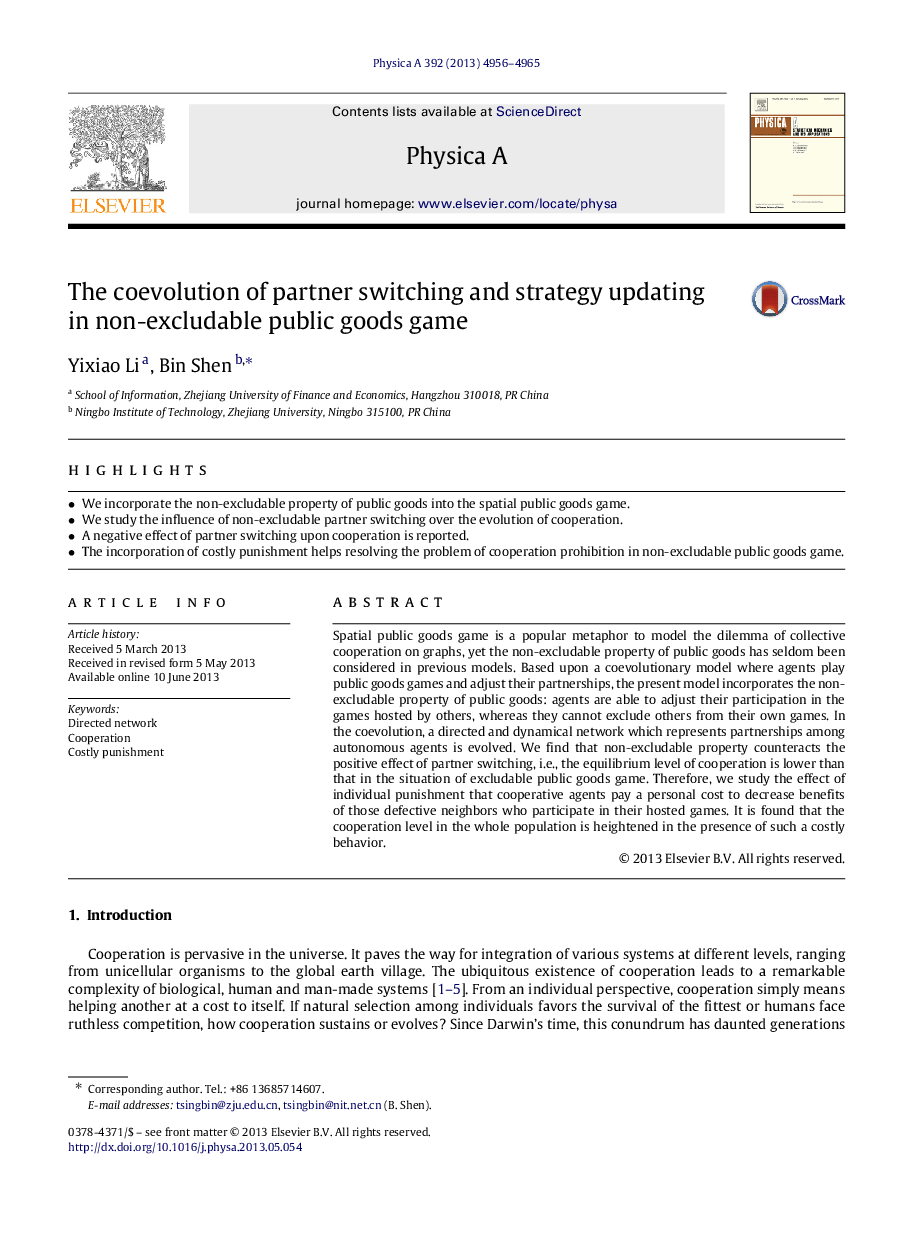| Article ID | Journal | Published Year | Pages | File Type |
|---|---|---|---|---|
| 10481891 | Physica A: Statistical Mechanics and its Applications | 2013 | 10 Pages |
Abstract
Spatial public goods game is a popular metaphor to model the dilemma of collective cooperation on graphs, yet the non-excludable property of public goods has seldom been considered in previous models. Based upon a coevolutionary model where agents play public goods games and adjust their partnerships, the present model incorporates the non-excludable property of public goods: agents are able to adjust their participation in the games hosted by others, whereas they cannot exclude others from their own games. In the coevolution, a directed and dynamical network which represents partnerships among autonomous agents is evolved. We find that non-excludable property counteracts the positive effect of partner switching, i.e., the equilibrium level of cooperation is lower than that in the situation of excludable public goods game. Therefore, we study the effect of individual punishment that cooperative agents pay a personal cost to decrease benefits of those defective neighbors who participate in their hosted games. It is found that the cooperation level in the whole population is heightened in the presence of such a costly behavior.
Related Topics
Physical Sciences and Engineering
Mathematics
Mathematical Physics
Authors
Yixiao Li, Bin Shen,
